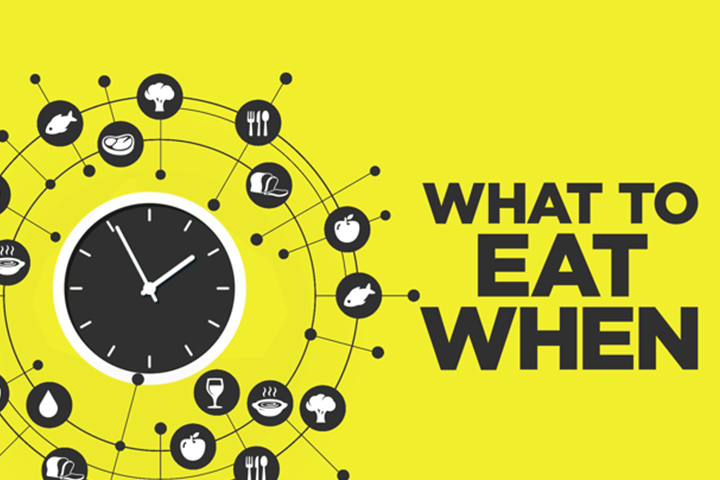What are the guiding principles in this system of eating?
这种饮食系统的指导原则是什么呢?
A few adjustments to existing eating habits will help sync up our internal systems. Two are especially important:
对我们现有的饮食习惯做些调整,有助于协调我们体内的系统。做到以下两点尤为重要:
1. Limit your eating to when the sun shines -- a window of about 12 hours or, better yet, fewer. That means cutting out nighttime refrigerator raids.
1.太阳升起后再吃东西--与上一餐之间间隔12个小时左右,不过若间隔能再短些就更好了。也就是说,晚上不要再“扫荡”冰箱了。
2. Eat more in the morning and midday and less later on. Your body will work best—and be healthier -- if you preload calories rather than save them until later in the day, as many of us do.
2.早上和中午多吃点,之后就要少吃。如果摄入热量的时间较早,而不是像我们许多人那样,等到晚上再大吃特吃,身体机能最好,也更健康。
We help people learn how to do this day to day. But we also define "when" another way. Our bodies change depending on what's going on in our lives -- so we may need to adjust what we eat to be at our best. In the book we list common situations, suggest the best things to eat to prepare for them, and explain the science behind our advice.
我们帮助人们逐步学会这种饮食方法,但我们也用另一种方式定义“何时”。我们的身体随着生活中的各种事情而变化,所以我们可能就需要调整饮食,使自身的状态达到最佳。在这本书中,我们列举了常见的情况,针对这些情况给出了最佳饮食的建议,并阐释了这些建议的科学依据。

What benefits do you tell people they'll derive from eating this way?
这种饮食方式的好处是什么,你们是怎样给大家讲解的?
The endgame is that this way of eating will extend your own endgame. It will help prevent disease and, in some cases, even curb or reverse disease. Following this plan can result in all kinds of improvements to your quality of life: better sleep, more energy -- and just overall better health.
其终极好处是能够延长寿命,有助于预防疾病,在某些情况下,甚至能够控制或逆转病症。采用这种饮食方式,能提高各方面的生活质量:睡眠更好、精力更加充沛--总的来说,身体会更健康。












